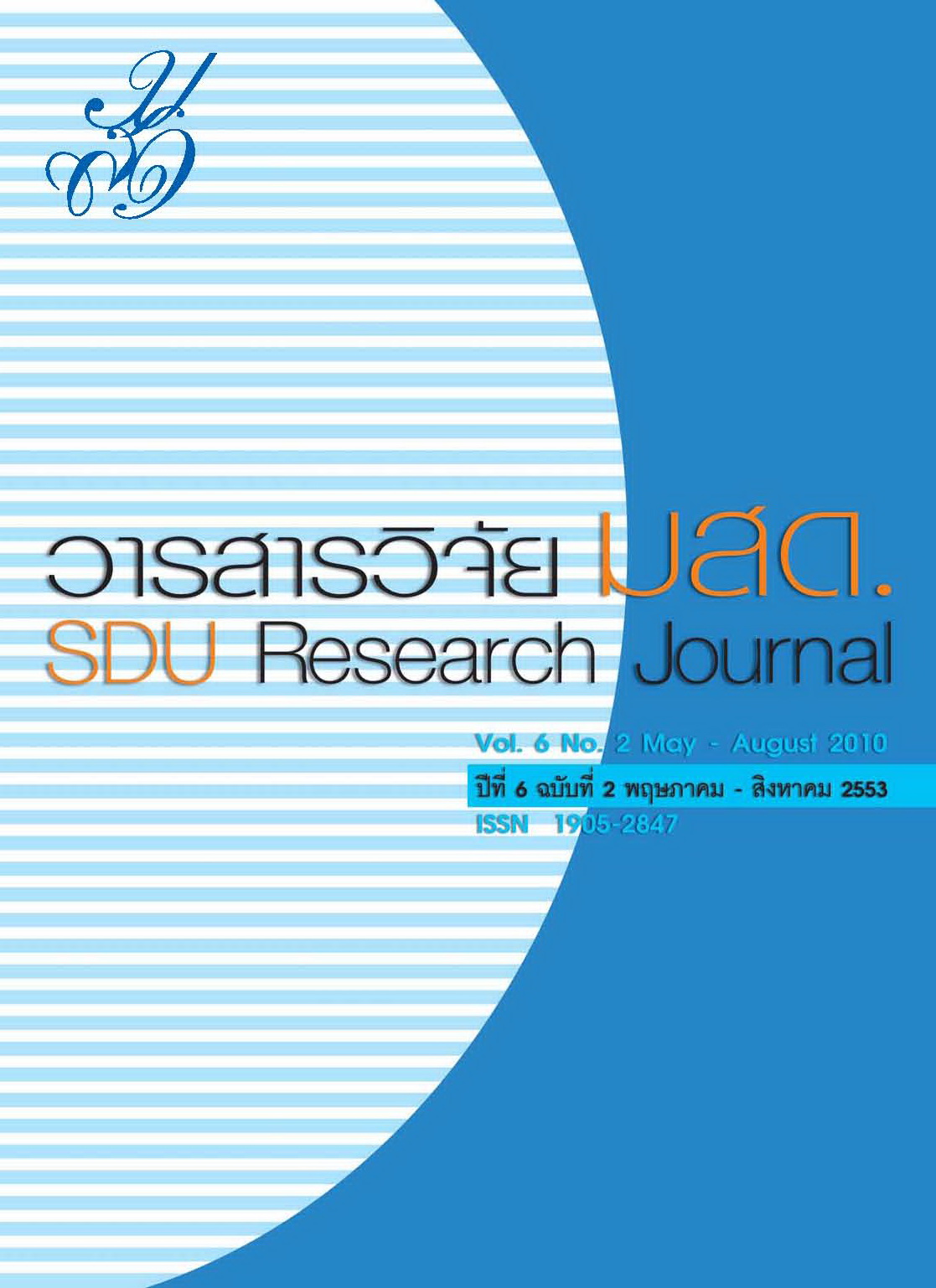การพัฒนาการจัดระเบียบอินเทอร์เน็ตไทย
Keywords:
การจัดระเบียบอินเทอร์เน็ต, ปัจจัยที่มีผลต่อการจัดระเบียบอินเทอร์เน็ต, การบริหารจัดการอินเทอร์เน็ตAbstract
Abstract
The purposes of this research were to study the status and policy of Thai Internet regulationdevelopment, to study the factors affecting Thai Internet regulation development, and to consider the guidelinesfor developing a model of Thai Internet regulations. The qualitative research methodology was employed in thisresearch to collect data for developing Thai Internet regulations with the use of in-depth interviews of 20people from both the public and private sectors who were involved with the development of Thai Internetregulations. Moreover, the quantitative research methodology was employed in this study for collecting andanalyzing foundation data using the frequency and percentage, for analyzing the data of factors influencing theInternet regulations using the mean and standard deviation, and for hypothesis testing using the t-test forcomparison between the means of different gender groups, ANOVA for comparison of means of group meansclassified by age, educational level, income, occupation, the Thai Internet regulation development and the factorsinfluencing it. The Pearsonûs product moment correlation coefficient was also employed to determine thecorrelations of factors influencing the Internet regulations and Thai Internet regulations. In order to validatea model, the survey research was applied by using 419 questionnaires to collect data from the top five agegroups of Internet users in Bangkok.The research findings showed that the model of Thai Internet Regulation Development was namedçINTERNET MANAGEMENTé or çINTERNET GOVERNANCEé depending on the collaboration and thecoordination of all parties of the stakeholdersfithe government sector, the private sector, and the civil societysector. However, the government sector would still keep the authority to intervene according to the law in orderto maintain the common social interests and then the Internet could not be totally controlled. Meanwhile, somenew measures of control should be applied which would be different from the original measures. The newmeasures should be characterized by being a flexible and interdisciplinary management process. Thus,GOVERNANCE was composed of G, which means Government Support; O, which means Organizing ThaiInternet Regulation Association; V, which means Value-added Hardware; E, which means Ethicsû CodeDevelopment; R, which means Revision of Laws; N, which means New Information Technology Improvement;A, which means Adaptation Channels; N, which means Normalizing Content Filter; C, which means CampaignBuilding Knowledge; and E, which means Enhancement People-ware.
Keywords: Internet Regulation; The factors affecting Internet Regulation Governance








